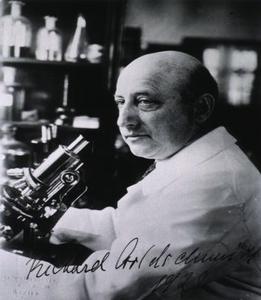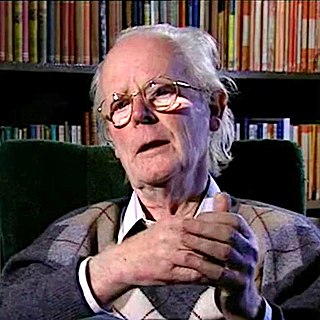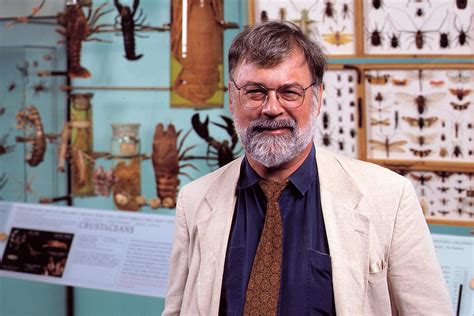A Quote by Richard Goldschmidt
It is good to keep in mind ... that nobody has ever succeeded in producing even one new species by the accumulation of micromutations. Darwin's theory of natural selection has never had any proof, yet it has been universally accepted.
Related Quotes
Natural Selection is not Evolution. Yet, ever since the two words have been in common use, the theory of Natural Selection has been employed as a convenient abbreviation for the theory of Evolution by means of Natural Selection, put forward by Darwin and Wallace. This has had the unfortunate consequence that the theory of Natural Selection itself has scarcely ever, if ever, received separate consideration.
The theory of natural selection is the centerpiece of The Origin of Species and of evolutionary theory. It is this theory that accounts for the adaptations of organisms, those innumerable features that so wonderfully equip them for survival and reproduction; it is this theory that accounts for the divergence of species from common ancestors and thus for the endless diversity of life. Natural selection is a simple concept, but it is perhaps the most important idea in biology.
Paleontologists ever since Darwin have been searching (largely in vain) for the sequences of insensibly graded series of fossils that would stand as examples of the sort of wholesale transformation of species that Darwin envisioned as the natural product of the evolutionary process. Few saw any reason to demur - though it is a startling fact that ...most species remain recognizably themselves, virtually unchanged throughout their occurrence in geological sediments of various ages.
Alfred Russel Wallace, the codiscoverer of the theory of natural selection. Following their twin announcements of the theory in 1858, both Darwin and Wallace struggled like Laocoöns with the serpentine problem of human evolution and its encoiling difficulty of consciousness. But where Darwin clouded the problem with his own naivete, seeing only continuity in evolution, Wallace could not do so.
Darwin repeatedly used the hypothesis of common ancestry as a platform on which to build his various ideas about testing hypotheses concerning natural selection. He also argued that adaptive similarities provide little or no evidence for common ancestry. Although this second claim needs to be fine-tuned, Darwin was right that ample evidence for common ancestry can exist even if none of the characteristics we observe were caused to evolve by natural selection.
Group selection and individual selection are just two of the selection processes that have played important roles in evolution. There also is selection within individual organisms (intragenomic conflict), and selection among multi-species communities (an idea that now is getting attention in work on the human microbiome). All four of these levels of selection find a place in multi-level selection theory.
Opponents say natural selection is not a theory supported by observation or experiment; that it is not based on fact; and that it cannot be proved. Well, no, you cannot prove the theory to people who won't believe in it any more than you can prove that the Battle of Hastings took place in 1066. However, we know the battle happened then, just as we know the course of evolution on earth unambiguously shows that Darwin was right.
Quantitative work shows clearly that natural selection is a reality, and that, among other things, it selects Mendelian genes, which are known to be distributed at random through wild populations, and to follow the laws of chance in their distribution to offspring. In other words, they are an agency producing variation of the kind which Darwin postulated as the raw material on which selection acts.
Darwin's theory of evolution is a framework by which we understand the diversity of life on Earth. But there is no equation sitting there in Darwin's 'Origin of Species' that you apply and say, 'What is this species going to look like in 100 years or 1,000 years?' Biology isn't there yet with that kind of predictive precision.
Scientific theories never dictate human values, but they can often cast new light on ethical issues. From a sexual selection viewpoint, moral philosophy and political theory have mostly been attempts to shift male human sexual competitiveness from physical violence to the peaceful accumulation of wealth and status. The rights to life, liberty, and property are cultural inventions that function, in part, to keep males from killing and stealing from one another while they compete to attract sexual partners.
Yes, I spent two long years, traveling all over the United States, all over Europe, interviewing many, many, many people who had been thrown out of their academic jobs because they taught that there was a possibility of life coming from something other than Darwinism, who thought that possibly random selection and mutations didn't account for the universe, didn't account for gravity, didn't account for why nobody had ever seen an individual species evolve - no one's ever seen an individual species evolve!































